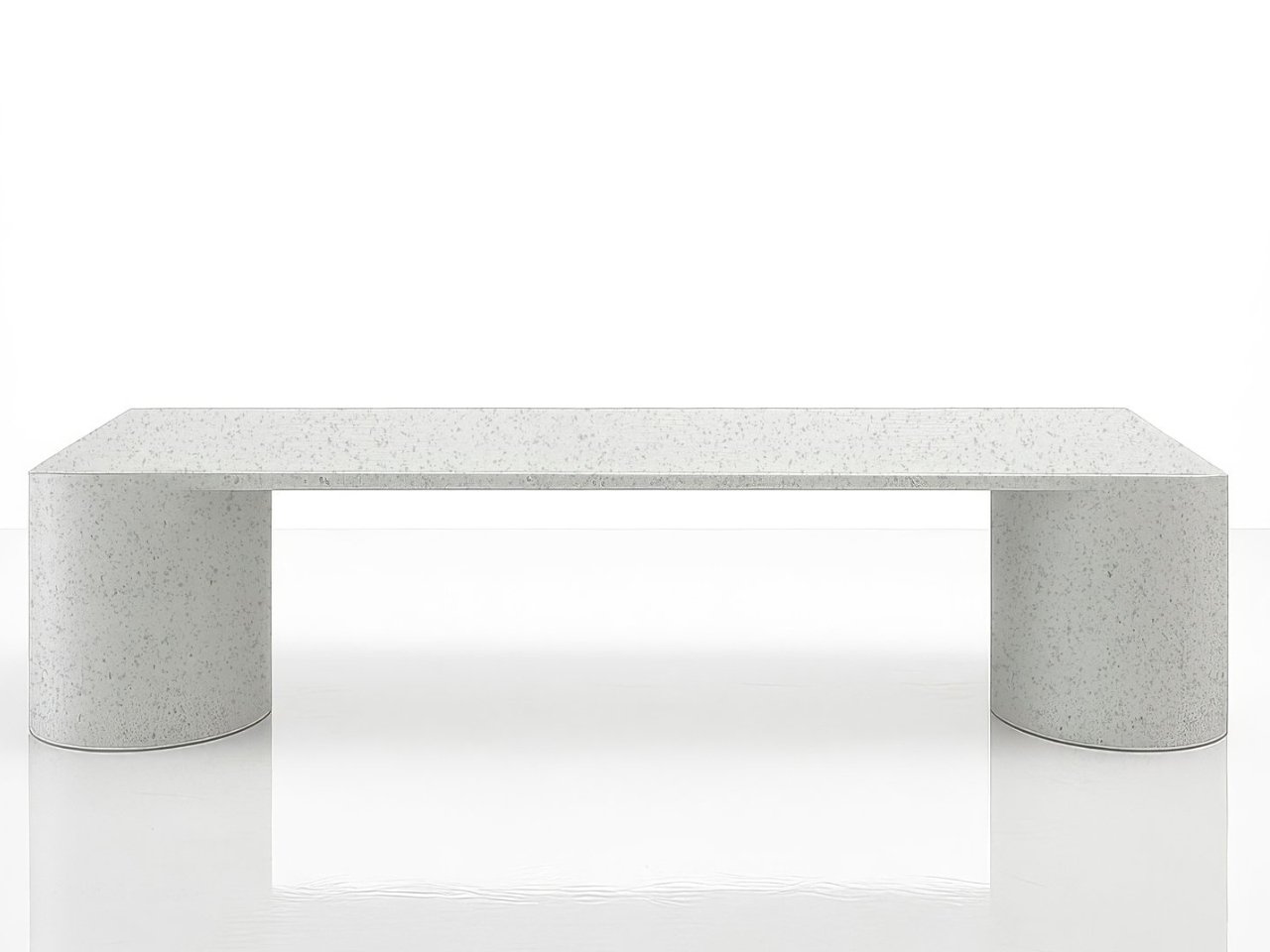Electronic waste is one of the top contributors to the world’s ever-growing trash problem. As long as we keep producing new gadgets and devices, there will be all kinds of waste that will probably end up in the landfill eventually once they reach end of life. Good thing there are designers that are constantly seeking innovative ways to integrate sustainability into their creations.
One of those designers is Joe Doucet, known for his thought-provoking and often minimalist aesthetic. This time he has taken this sustainability challenge by creating a piece of furniture that is also a compelling statement about the potential for repurposing discarded materials and transforming them into objects of beauty and functionality. The OLO Table is constructed from discarded electronic waste with old refrigerators, keyboards, and computer mice are given a new lease on life.
Designer: Joe Doucet
The material at the heart of this innovative table is Polygood Oyster, a testament to the transformative power of recycling. This unique material is meticulously crafted from polystyrene, carefully extracted from a diverse range of electronic waste. Once harvested, the polystyrene undergoes a process of thermoforming, where heat and pressure are applied to shape it into the desired forms, in this case, the table’s base.
The inherent beauty of Polygood lies in its composition. The recycling process leaves behind a captivating tapestry of colorful flecks and fragments, remnants of the electronics from which it originated. These visual inclusions aren’t imperfections; they serve as a tangible layer of history, each table subtly narrating the story of its past life.
This intriguing visual element adds depth and character to the piece, making it a unique object of conversation. Furthermore, the fluid geometry of the OLO table, with its seamless and monolithic top flowing into semi-circular legs, directly embodies the closed-loop design philosophy championed by both Joe Doucet and The Good Plastic Company, the manufacturers of Polygood. This continuous form visually represents the cyclical nature of the material, where discarded resources are given new purpose in a closed system, minimizing waste and maximizing material value.
The OLO table is more than just an aesthetically pleasing piece of furniture; it embodies a powerful message about circularity and the value of waste. By utilizing discarded electronics, Doucet addresses the growing problem of e-waste, transforming what is typically considered refuse into a desirable and functional object. This approach challenges our perception of waste and highlights the potential for innovative upcycling in the design industry. However, you probably won’t be able to add this to your space as it’s a one-off creation and there are no plans to produce more in the future.
The post Terrazzo-like table brings electronic waste to life with closed-loop design first appeared on Yanko Design.

